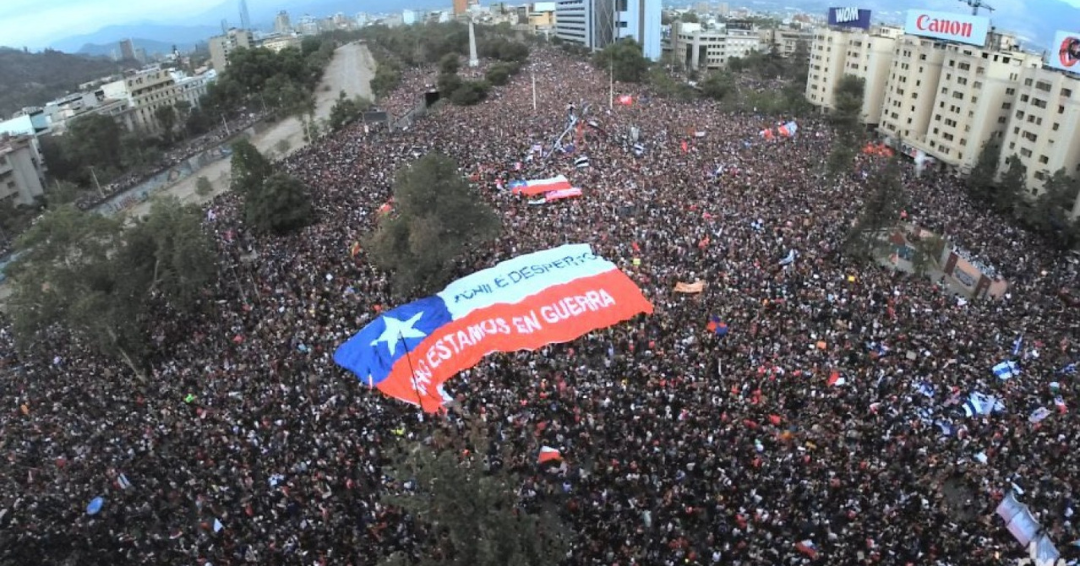Using the 2019 protests as a case, Chiara Sáez, Patricia Peña and Javier García examine challenges to freedom of expression in their research on Internet regulation during the social outburst.
How Internet Regulation Operated during the Outburst
The article, published in the Journal of Digital Media & Policy (Scopus), is part of a special issue on “Emerging Debates on Internet Platform Policy and Regulation in Latin America”, published by Ana Bizberge, Guillermo Mastrini and Rodrigo Gómez.
The research identified three infringement practices in the analyzed period: algorithmic censorship, DDOS attacks and use of SLAPPs against digital activists.
On the other hand, in terms of public action, several bills to regulate the Internet have been introduced in Chile in recent years that arise from an analog perspective of the issue and do not understand the specificity of this medium. This allows a dissociation between the actions of public powers (parliament and justice) and the safeguards to protect freedom of expression online in a social crisis context.
In the case of digital platforms, 238 cases of automatic filtering and account blocking were documented on Instagram, Facebook, X (Twitter) and YouTube in the five weeks after the start of the social outburst.
Opacity of Moderation
Several types of users (natural persons, influencers, media, reposting accounts, etc.) experienced some type of digital incident, as well as difficulties in uploading posts, elimination of accounts, and elimination of posts containing images, audio files and videos.
The opacity of content moderation on social media platforms is a new facet related to freedom of expression in Latin America, in which the situation of Chile starting on October 2019 provides a good case study in terms of the consequences or scope of moderation in sociopolitical crises.
This is not only as a result of automated system failures or the biases of human moderators, but also because the criteria used by these companies to define what must be moderated and sanctioned operate as a black box for their own users.
International Presentation of Findings
In the context of the Media Futures Conference, organized by the Department of Media and Communications of the London School of Economics (LSE), researcher Patricia Peña, a former graduate student at this institution, presented some of the main results of the research on Internet regulation and freedom of expression during the Chilean social outburst.

Peña reviewed the cases of algorithmic censorship identified in the study in relation to contents uploaded to various social media platforms to report violations to freedom of expression and/or human rights in Chile.
“The reception and debate generated in the panel where we presented allowed us to discuss with evidence a situation that replicates in other countries that have experienced sociopolitical crises, and where these content moderation practices by social media platforms become an issue because evidence of human rights violations in protests or social demonstration contexts is eliminated or made invisible,” reflected the researcher.
See summaries of the event’s presentations here.


